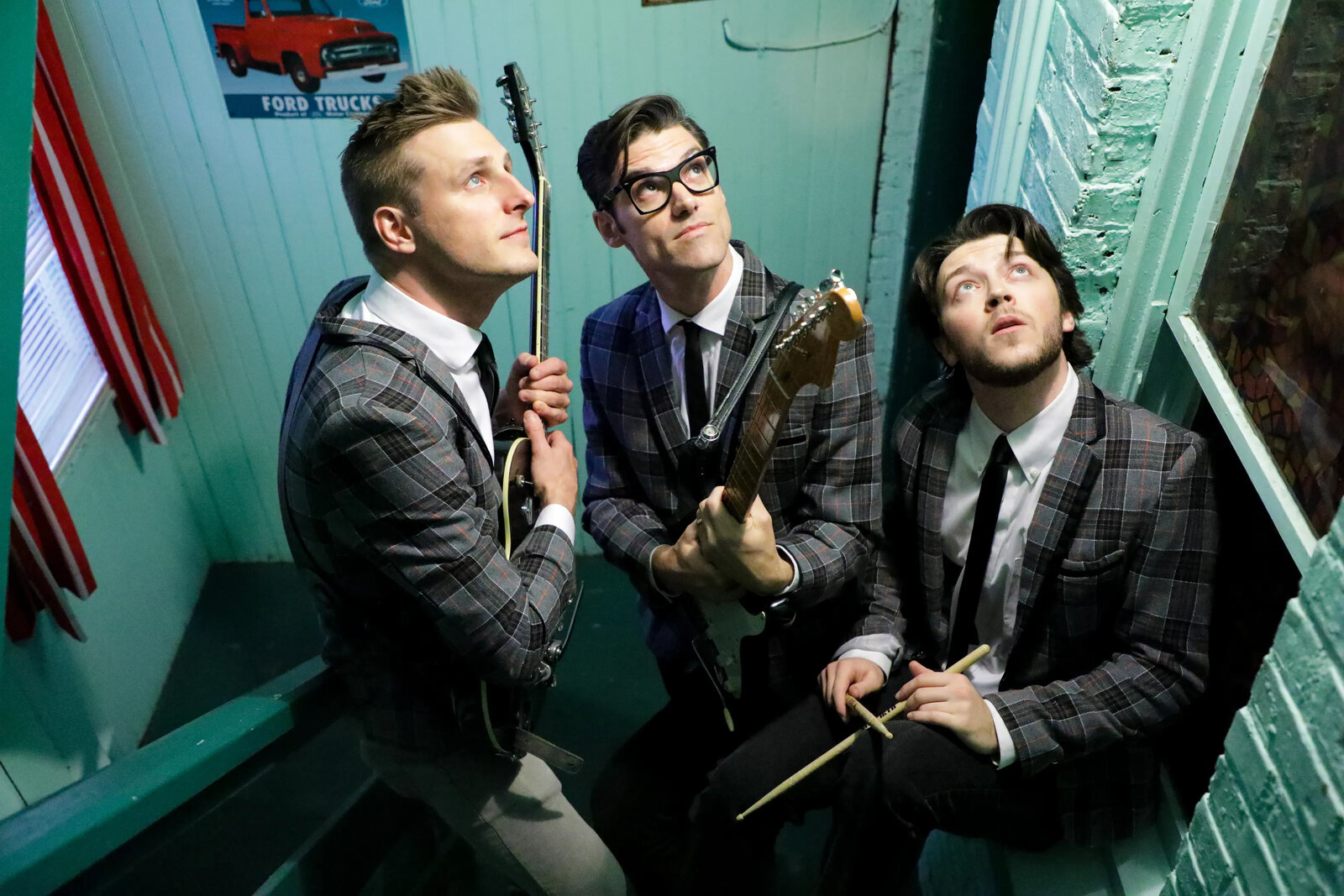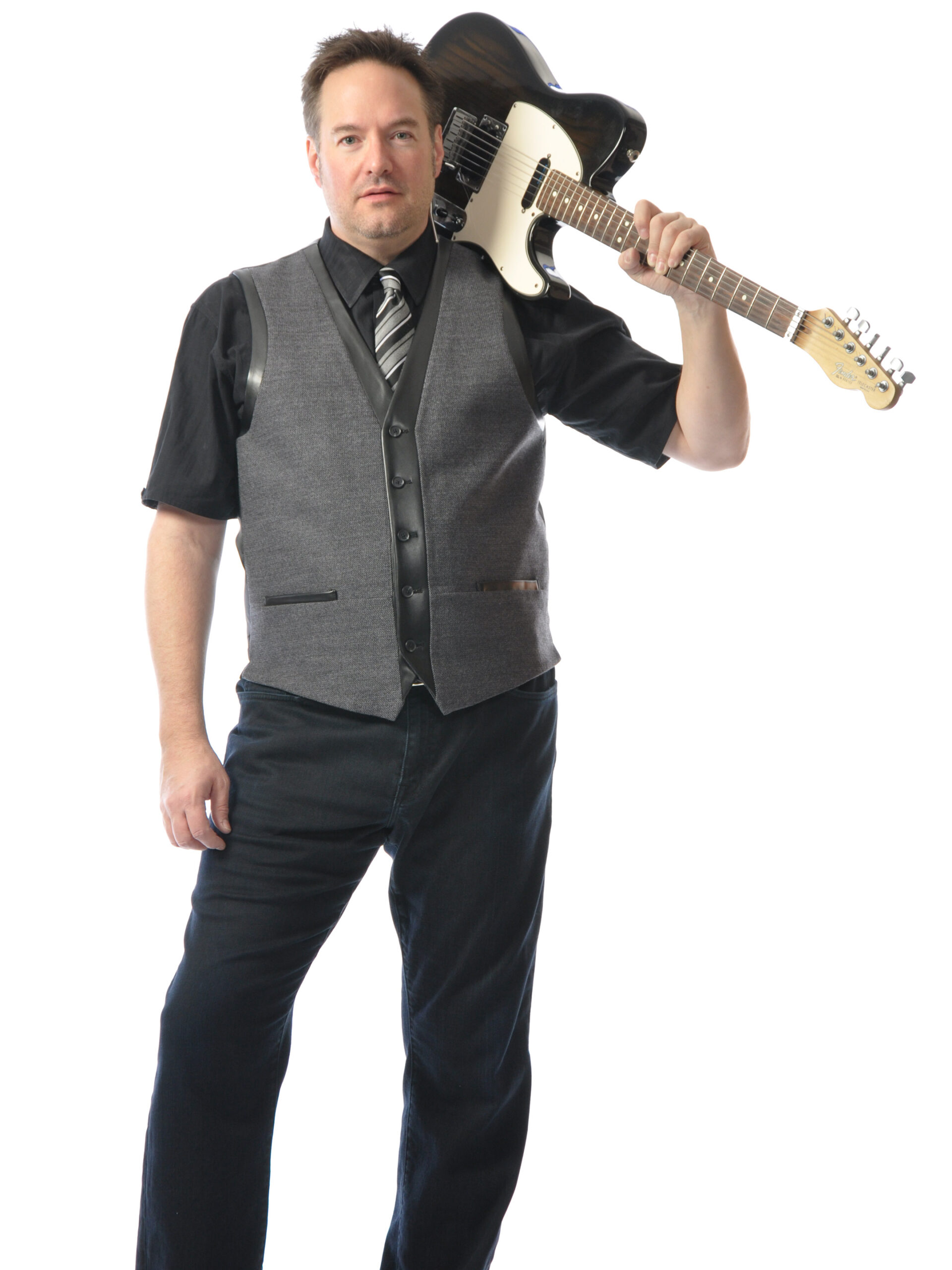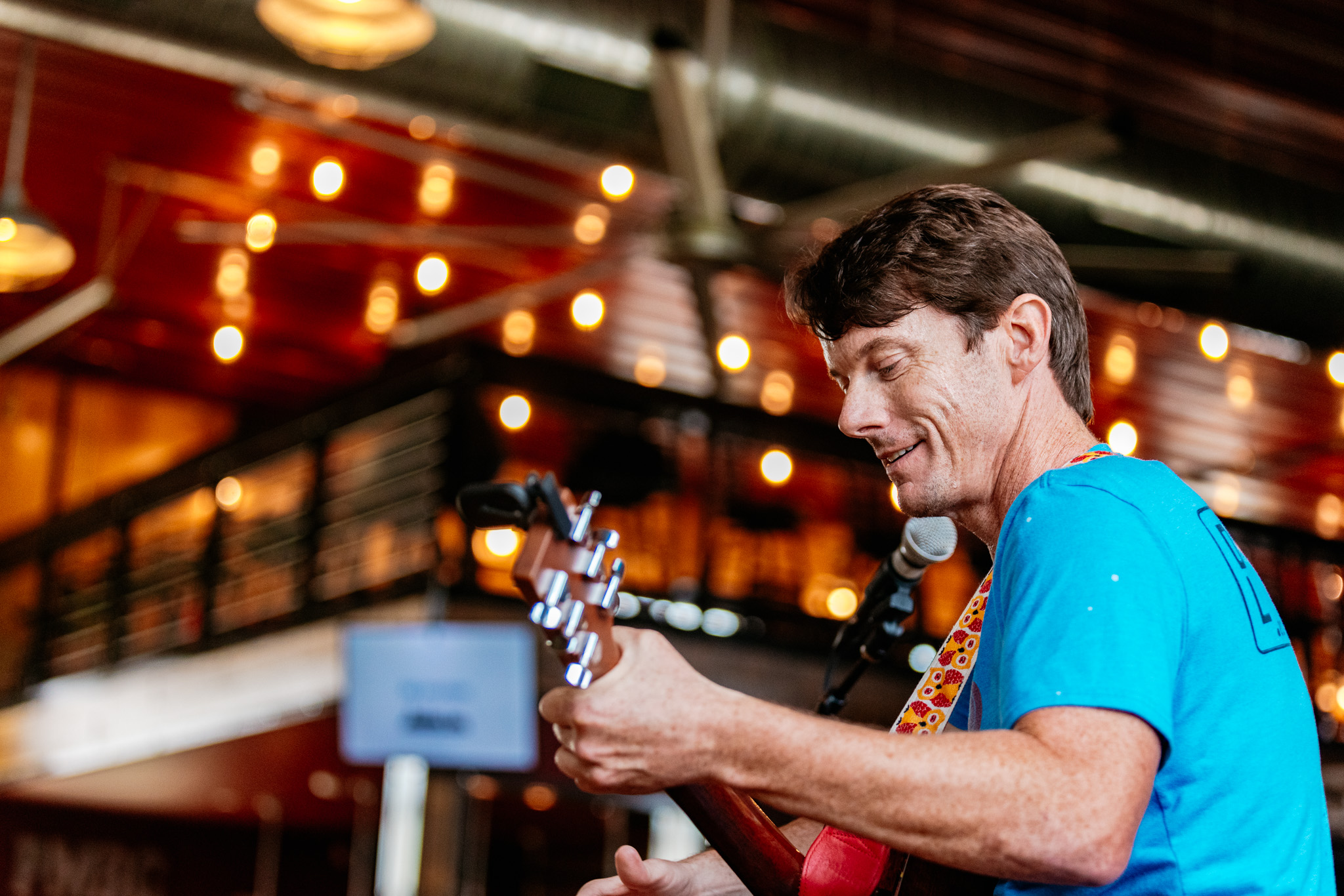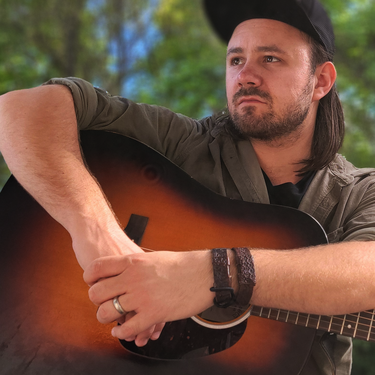Can you share your musical journey with us, from when you first discovered your passion for music to where you are today as an independent musician?
I have enjoyed performing for as long as I can remember. From an early age I remember singing in choirs and playing with my dad’s guitar. I eventually decided to take it further. In Junior High, I joined the school band as a percussionist, school choir, and started to teach myself guitar and piano. In High School I joined a group of friends in a rock band and I was the drummer and one of the songwriters. When I got to college, the plan was to finish and be a high school band director, but I realized I could play often, in many places around town, and that feeling of performing would come out way more often than just doing a few shows like I had been.
I put another band together with some friends from college, we played in several places around Dallas/Fort Worth, TX and it soon became apparent that finishing my degree and teaching public high school band was not in my future. I then set out a business plan that would allow me to make music and perform for a living WITHOUT having to give up the life and friends I’ve gained over the years. Now I get to be a husband and dad, live in a house I own, and still perform my original tunes in front of audiences. The audiences aren’t giant, but they’re loyal.
What motivates you to create music, and how do you stay inspired to continue making new and unique music?
The biggest motivator is the need I see for it. There is so much music out there that you could convince yourself it’s all been done, but that’s just not true. When I think of something that needs to be said, I’ll feel inspired to write a song around that message. Also, boredom. Boredom with the old stuff makes me want to write new songs. Sometimes, it takes so long to get a song from inception to release, that by the time it comes out, I’m already bored with it!
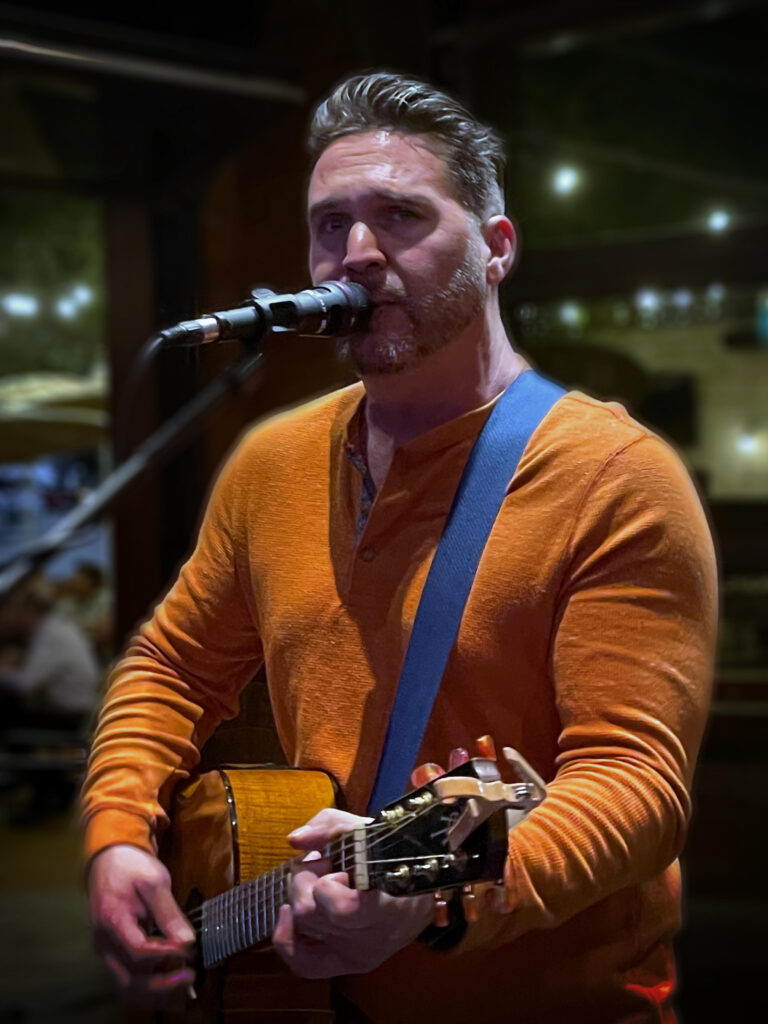
As an independent musician, you wear many hats – from composing to marketing. How do you balance these different aspects of your career, and what challenges do you face in the process?
One of the biggest challenges between the artist and promoter hats is that when you create something, you care more emotionally than when you are trying to sell it. As a marketer, you have to think in terms of who is going to buy it and pitch to them. If the marketer is thinking like the creator, they might wind up pitching to the wrong people. Likewise, if the creator is creating but the marketer has an early meeting, I have to decide which hat takes precedence. Do I stop the creative process and go to bed, or do I risk being tired and missing the meeting? Don’t even get me started on the part of me that uses the gear vs. the part of me that manages the budget. Those two parts are always at odds with one another.
Could you tell us about your creative process? How do you come up with new ideas for songs, and how do you go about turning those ideas into finished tracks?
My creative process usually starts with the lyrical message I intend to include. What I want to say to the listener is why I write the songs. From there, we work through chord and melody progressions with an ear to what sounds unique but also cool. Once that’s done, we can move into deciding how to support it instrumentally, how much to add, or how little to use. Once we have a good structure, rhythm, and tonal concept, it just comes down to putting it together and hearing if it’s complete or not. Much of my time after recording a demo of my idea is spent listening and asking myself (and sometimes others) “what’s missing?” Most of the time we can figure out what it needs and put out a product that feels finished. Every now and again though, there’s one I just can’t mess with anymore, and we have to decide whether to see if it can fly as is or put it away for another day.
Independent musicians often face financial challenges. How do you manage your finances to sustain your music career while also covering your personal expenses?
We have a certain amount that we need to earn every show and a portion of that goes to the business while a portion of that goes to the family. We have to use discipline to live within a budget, but overall it’s doable with some intentionality.
Can you share a particularly memorable or challenging experience from your journey as a musician that has had a significant impact on your career and personal growth?
I got to meet one of my favorite songwriters years ago. Charlie Robison told me to keep playing everywhere I can in front of whomever I can. I’ve been trying to heed his advice. He passed recently so that story has been fresh in my memory. Thanks for everything Charlie!
With the rise of digital platforms, the music industry has changed significantly. How do you navigate the digital landscape, including streaming services and social media, to promote your music and connect with your audience?
That’s the million-dollar question. I come from an age when promotion was handing out fliers and music distribution was selling CDs at a show. The social media platforms have expanded so rapidly that it’s hard for someone like me keep up. My wife and I do our research and try to stay vigilant to keep our content accurate, current, and interesting. We’ve learned to streamline our processes and get the best out of each platform and what it offers. And as soon as you read this, something has probably changed and we’re retooling our approach!
Technology and social media play a crucial role in promoting music, unfortunately, it does that for everyone so it can also become a saturated media where only the folks with the biggest budget get through. It seems like a level playing field, but the misunderstanding is that the platforms are for the users benefit. They are for the platform’s benefit, which means the richest advertisers will get the biggest notice. In that regard, it’s no different than the outlets that existed before the internet…whoa, how old do I sound?
Collaboration is a key part of the music industry. Have you worked with other musicians or producers, and how have these collaborations influenced your sound and career?
I co-wrote my first song a few years ago and it was a fun experience. Being able to openly communicate ideas before they went into a song allowed for us to come up with the BEST ones, not just the only ones a person could think of. I think if you’re with the right people, it will fuel your creativity. If it squelches you, you need to get with some other people.
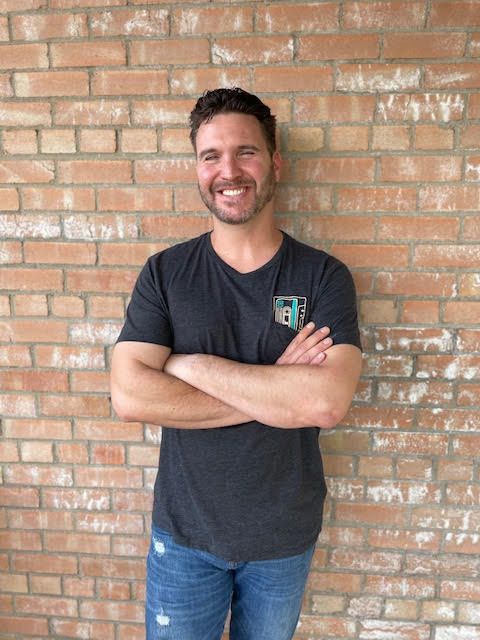
Your music likely reflects your unique style and perspective. Could you describe your musical identity and what makes your sound stand out in a crowded industry?
I like to mix it up. At a live show, people often comment how even when I’m playing covers, I put my own spin on it and mix up genres across the board. Most people have playlists with all types of music on it, so I try to respect that when I put a set together. I play acoustic guitar mostly, but don’t just strum along. Based on comments from audience members, I’ve been able to see that the audience enjoys me picking up bass lines, lead licks, and percussion on the guitar. That’s one of the reasons I play acoustic guitar. It can sound like a lot all by itself.
What role does live performance play in your music career, and how do you approach planning and executing your live shows, especially in light of recent challenges like the COVID-19 pandemic?
COVID-19 was scary for the obvious reasons, but it also made gathering dangerous and scary. When your living is based on live performance for audiences, it was hard to figure out how to make a living. Live performance is the number one way musicians like me make a living. I know some folks do more online than live and they’re set up way better for something like COVID-19. I had to figure out how to have a better digital presence and that helped a little, but having the world open and keeping the world open is important to me so I can keep playing the shows I have planned.
Many fans are interested in the stories behind the songs. Could you share the backstory or inspiration behind one of your recent tracks that holds special meaning to you?
RV, which just came out, was a songwriting exercise. While I was in studio finishing my album “I Wish It Would Rain” I wanted to keep my writing chops up but didn’t want to emotionally commit to a new song because I was already committed to finishing the production of the album. Once a week, I would get online and ask my fans for a topic to write on, would spend a few hours writing the song, then post a video of it that afternoon. It was a pretty good exercise, but I didn’t expect to get anything out of it I’d want to keep.
I had a friend who had recently sold his house, bought an RV, and was traveling the country with his wife. He suggested “RV” in the comments that day, when I asked what to write about, and the song idea was born. He has since passed away, but his memory will live in my heart and you’ll see it in my smile every time I sing “RV”.
Looking ahead, what are your future goals and aspirations as an independent musician? Are there any upcoming projects or exciting developments in your career that you’d like to share with your fans and the audience?
We are always, always, always trying to expand our audience and reach. We are looking for new places to bring the live show, new playlists to have our music on, new bloggers to write about us, new podcasts to participate in. As the world has changed so much, it’s not the same old business out there so we need more help from our fans about finding new avenues to reach into. I am so thankful for my fans, fans of music, and folks like Soundhub to help us get the message out. Thanks so much!

